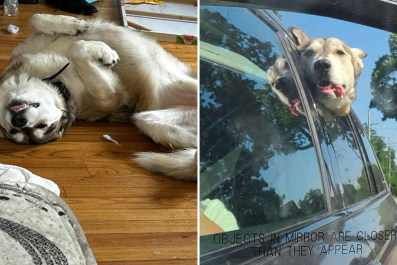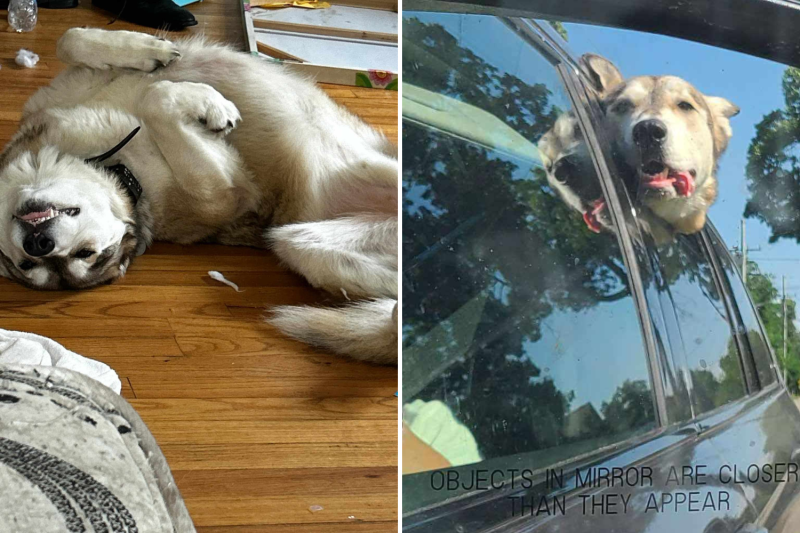
Wolfdog 'Deserves the Chance' at a Home After Six Months in Shelter
A dog in a shelter in New York is searching for a home, but there's one difference—he's part wolf.
Bear, a wolfdog currently housed at the Islip Animal Shelter and Adopt-a-Pet Center in Long Island, New York, is struggling to find a forever home, highlighting the challenges faced by wolfdog hybrids.
Adam Cottrell, manager of the Medfield Massachusetts Animal Shelter and advocate for wolfdogs, has been campaigning to help Bear.
Bear was surrendered to the shelter due to severe separation anxiety, which, according to Cottrell, makes it difficult for him to be left alone. "Bear is very destructive when left unsupervised and can break out of a standard crate," Cottrell told Newsweek.
"He needs someone who can be home frequently or has a secure, escape-proof enclosure," he said.
Despite his challenges, Bear is described as great with kids and other dogs and has been a well-adjusted household pet before arriving at the shelter.

Cottrell has spent the last decade finding homes or sanctuaries for wolves and wolfdogs through his nonprofit, the Northeast Wolf Refuge, and is now working with the Islip shelter to help Bear find a suitable placement.
The rehoming of wolfdogs like Bear is complicated as in many states, owning wolves or wolfdog hybrids is illegal. For example, in New York, wolfdogs are classified as wild animals, making it illegal to own or adopt them as pets. This classification often forces wolfdogs into sanctuaries rather than family homes, even if they display few to no "wild" traits.
"Bear has a low percentage of wolf in his DNA and acts mostly like a dog," said Cottrell. "He deserves the chance to live as a household pet, just like any other dog with separation anxiety."
Laws regarding wolfdog ownership vary widely across the United States. While places like Alaska impose complete bans on wolfdog ownership, states such as Florida permit it with restrictions, whereas Nebraska has no regulations at all. This legal inconsistency often leads to confusion and limits options for placing wolfdogs in need.
The Islip Animal Shelter is open to placing Bear in a home in a "wolfdog-legal" state or transferring him to a wolfdog facility that can assist in finding him a suitable placement. "It's frustrating that a dog with this low of a percentage of wolf is still considered a wolfdog," Cottrell said. "The shelter is willing to work with us, but they're restricted by the law and Bear's classification as a wolfdog."
"Bear is a great animal and deserves a chance," he added. "Just because he has some wolf in him doesn't mean he can't be a loving companion."
